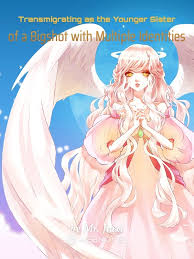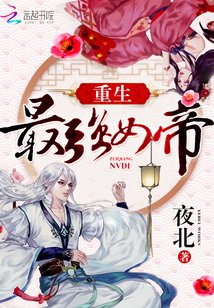The Story in 3 Sentences
A modern heiress, Gu Yang, wakes up trapped in the body of a doomed novel character, the fake daughter destined to be cast out and suffer for her past sins against the true heroine and the story’s main villain.
Instead of fighting her fate, she tries to make amends, only to find her biological family refuses to let her go and the powerful, enigmatic villain, Feng Jue, becomes dangerously, obsessively devoted to her.
Her simple plan for survival spirals into a chaotic, heartwarming saga where she is doted on by everyone she tried to escape, turning her from a doomed villainess into the most cherished person in their world.
Why It Stands Out
1. The Anti-Villainess Who Wins by Surrendering
Gu Yang’s genius isn’t in overpowering her enemies but in disarming them. Her strategy of apologizing, returning stolen blood, and trying to set boundaries backfires spectacularly in the best way, as her targets respond not with vengeance but with overwhelming affection and loyalty. This subversion of the typical revenge plot creates a uniquely feel-good tension where the biggest conflict is managing the sheer volume of love and protection aimed at her.
2. Sibling Love as the Ultimate Power Move
The core dynamic isn’t just romance; it’s the revolutionary bond between Gu Yang and Gu Jin, the true heiress. In a genre rife with catfights and betrayal, their relationship is pure gold. Gu Jin, a powerhouse with multiple secret identities, chooses to dote on and protect her “fake” little sister, making their alliance the story’s most powerful and endearing force. This focus on healthy, supportive sisterhood over rivalry is a breath of fresh air.
3. A Villain Who’s More Puppy Than Predator
Feng Jue, initially set up as the tragic “blood bank” villain, undergoes a complete transformation. Gu Yang’s small acts of kindness crack his icy exterior, revealing a man capable of deep, almost childlike devotion. His famous line, “My blood, my body, and everything I own belongs to you,” shifts from a statement of ownership to one of absolute, willing surrender, making their romance a slow-burn masterpiece of emotional healing.
Characters That Leave a Mark
There’s Gu Jin – the true heiress and a woman of immense, hidden power who could crush her impostor sister but instead chooses to elevate her, declaring the Gu family’s wealth insignificant compared to what she can offer Gu Yang.
You’ll meet Gu Pei, who is the fiercely loyal younger brother whose entire world revolves around his older sister Gu Yang, loudly proclaiming that she is the only sister he will ever acknowledge and that she deserves everything the family owns.
And Feng Jue? They’re the one who started as a broken, used “blood bank” and became Gu Yang’s most devoted protector, his entire being focused on her after she showed him a sliver of kindness, confessing that all he can think about is her.
The Flaws Fans Debate
Some readers find the “everyone is obsessed with Gu Yang” premise to be overly wish-fulfilling, bordering on Mary Sue territory.
The romantic subplot between Gu Yang and Feng Jue, while popular, can feel rushed or overly intense for some, given his initial trauma.
A few fans note that while the story is complete and satisfying, the middle section can feel slightly padded as it explores the various ways Gu Yang’s family and friends dote on her.
Must-Experience Arcs
Ch. 1–50: The Great Apology Tour – Gu Yang, armed with nothing but regret and a survival instinct, attempts to make peace with Gu Jin and Feng Jue, setting in motion the chain of events that turns her world upside down as her apologies are met with bewildering affection.
Ch. 300–600: The Bigshot Sister’s Shadow – As Gu Jin’s multiple identities and vast influence are gradually revealed, this arc showcases the true depth of her power and her unwavering commitment to shielding Gu Yang from any and all threats, turning their sisterly bond into an unassailable fortress.
Ch. 1000–1208: The Psychiatric President’s Confession – The climax where Feng Jue’s devotion reaches its peak and his own hidden depths are fully explored, culminating in him claiming his role as the president of the psychiatric association and declaring his entire existence belongs to Gu Yang, tying up the central romance with a bow.
Killer Quotes
“My blood, my body, and everything I own belongs to you.”
“I only have one older sister, and that’s Gu Yang! Gu Yang, you can have everything in the Gu family!”
“What is the Gu family? I can give you ten times what they can give you.”
Cultural Impact
Readers frequently praise it as a rare, complete transmigration story that delivers a fully satisfying ending without loose ends.
It has sparked countless requests in fan communities for more novels featuring non-competitive, loving relationships between “fake” and “real” daughters.
The novel is often held up as the gold standard for stories where the female lead’s power comes from empathy and connection rather than combat or scheming.
Final Verdict
Start Here If You Want:
A hilarious and heartwarming story where trying to do the right thing backfires in the best possible way.
A transmigration novel that completely subverts the “evil stepsister” and “tragic villain” tropes.
A completed saga with a definitive, happy ending that ties up every thread.
Study If You Love:
Narratives that explore the transformative power of kindness and empathy in a cynical world.
The deconstruction of common xianxia and webnovel tropes, particularly around female rivalry and villain redemption.
Character-driven plots where relationships and emotional growth are the primary engines of the story.
Avoid If You Prefer:
Stories with high-stakes action or traditional, gritty conflict as the main driver.
Novels where the protagonist earns their status through solitary struggle or combat prowess.
Plots that avoid wish-fulfillment elements or where romantic interests are not intensely devoted.





